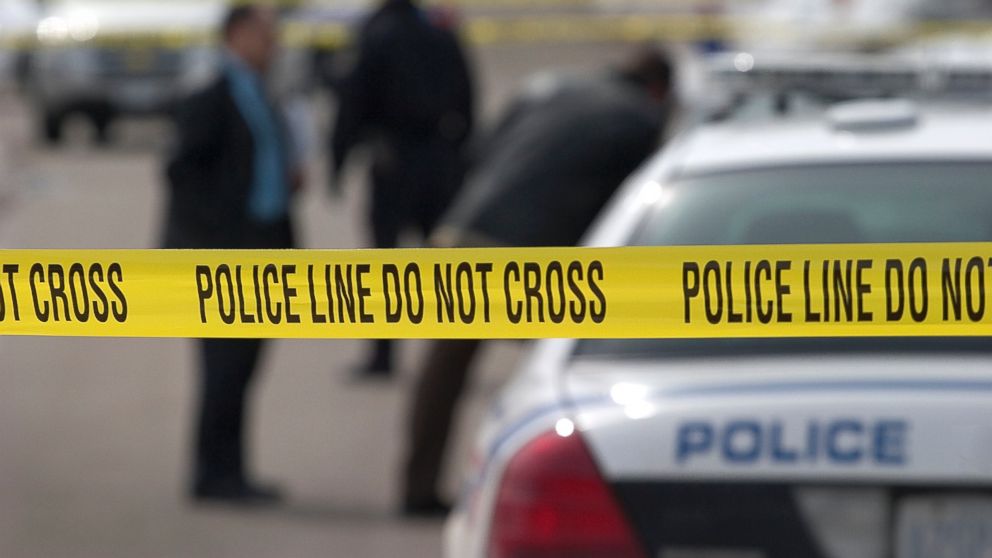Life of Constant Crises Takes Emotional Toll on 911 Operators
The psychological trauma endured by 911 dispatchers.

July 7, 2014— -- For Brooklyn Mundo, the profound stress of being a 911 dispatcher is encapsulated in the day that she took a call from a Florida hair salon where four people had just been gunned down.
She remained calm throughout the ordeal, hung up the phone, went outside, wept for 10 minutes and then she had to “suck it up, brush it off, go back in and take another call.”
Mundo is no longer a 911 phone operator, partly because of the personal toll the job demanded of her.
“Your body starts to live in crisis mode because you’re always dealing with the crises of other people,” Mundo of Casselberry, Fla., told ABC News.
“I didn’t realize it right away, but over time I noticed that I was almost getting number where it was difficult for me to have a soft heart to the people I really care about,” she said.
From Heart Attacks to Massacres, 911 Operators Hear It All
Mundo's experience is similar to many other emergency dispatchers, the faceless voices of calm and reason who help people through their most difficult moments.
These literal first responders go unrecognized for the life-saving work they do, and the emotional and psychological trauma also often goes unrecognized. It is work that can exact a significant toll on dispatchers, sometimes to the point of being diagnosed with post-traumatic stress disorder.
“For a person calling 911, it is the one worst moment of their lives,” former Vancouver 911 dispatcher Rae-Lynne Dicks told ABC News. “They don’t know or understand how the system works other than that’s the number I’m supposed to call when my life is falling apart or something is on fire or somebody’s having a heart attack or any of the many thousands of reasons a person would have to call 911.”
“For the 911 operator, the call-takers, that’s what they hear all day,” Dicks said.
"The minute you hear somebody scream, your initial reaction is, ‘Oh my God’ and you start freaking out."
The spectrum of calls includes pocket-dials, stolen bikes, medical emergencies, violence and unimaginable horrors that some call-takers “wish to God” they could forget.
“People think, ‘Oh, they’re just dispatchers. It’s their job. They’re used to it,’” Georgia 911 supervisor Elaina Fincher told ABC News. “No, we’re really not. You don’t ever know what you’re going to get when you pick up that phone. You never know.”
Some emergency centers have both 911 operators, also called call-takers, and dispatchers. Operators answer the calls and talk to members of the public, finding out what their emergency is and where they are. Dispatchers communicate with and deploy police, firefighters and EMS to the scene. In some places, one person does both jobs.
For 911 emergency staffers across the U.S. and Canada interviewed by ABC News, the first thing they must learn to do is to maintain their cool, no matter what is happening at the other end of the phone line.
“The minute you hear somebody scream, your initial reaction is, ‘Oh my God’ and you start freaking out. But you just have to — no matter how hard your heart is pounding — you have to keep your voice calm and it takes a while to learn that,” said a Colorado dispatcher who asked that her name not be used.
While maintaining a calm voice can be learned, many said they just can’t learn to shake some calls. A number of the operators said that calls involving children are particularly difficult as well as calls where they hear someone die, whether it is from injuries or suicide.
Mundo, the Florida dispatcher, said 911 dispatchers and operators are expected to be as emotionally tough as hardened cops.
“In law enforcement, there’s this sub-culture or subconscious thought that says, if you need counseling, if you need help, then maybe you can’t take it,” Mundo said. “It’s kind of like a hero complex where you feel like you’re saving people all the time and even if you need help, you just want to brush it off and say, ‘You know what, forget it. I’ll just keep going.’ You just want to push through it when you really do need some help.”
Fincher reached her “breaking point” in 2012 when she was at the park with her daughter and realized that she was agitated all the time.
“If we keep this bottled up, we’re bound to explode and have a mental breakdown,” Fincher said. “I had reached a point where I was just so tired all the time, I was angry all the time and I really didn’t know why.”
She went to see a doctor and was diagnosed with PTSD from her job. Part of her treatment included making a Facebook page for 911 operators and dispatchers that provides a community for support and sharing.
The operators and dispatchers celebrate the joys of successful calls, whether it’s keeping a parent calm until they discover that their missing child has been hiding in the closet or talking someone through an injury until help arrives.
Michelle Lilly, a member of the Department of Psychology at Northern Illinois University, co-authored a study on the emotional stress endured by 911 operators and dispatchers.




